Publications
Articles, publications, books, tools and multimedia features from the U.S. Institute of Peace provide the latest news, analysis, research findings, practitioner guides and reports, all related to the conflict zones and issues that are at the center of the Institute’s work to prevent and reduce violent conflict.
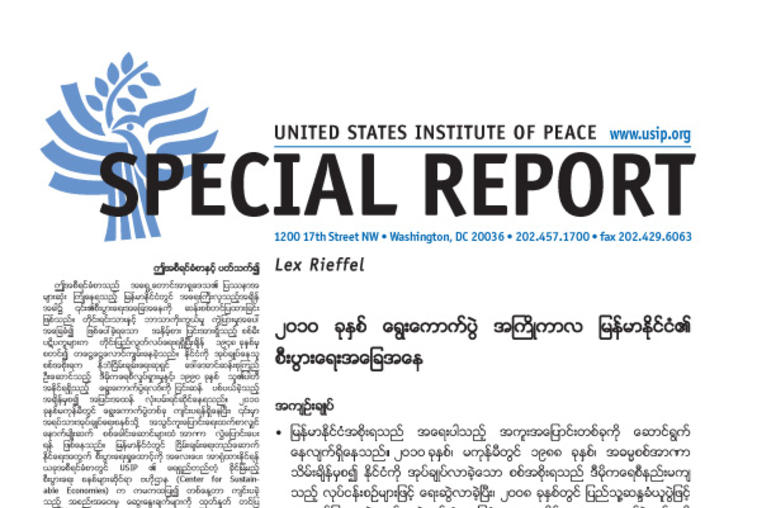
The Economy of Burma/Myanmar on the Eve of the 2010 Elections (Burmese edition)
The government of Burma is undergoing a critical transition: Before the end of 2010, the military regime that has ruled the country since a palace coup in 1998 will hold an election based on a constitution drafted in a nondemocratic process and approved by a referendum in 2008. The referendum fell far short of global standards of credibility and the election is likely to yield a government that neither the antimilitary movement nor the international community views as legitimate. However, t...
What Does the G20 Toronto Declaration Mean for Conflict-Affected States?
Leaders of G20 nations reached consensus on a set of measures to address current and emerging global economic and financial challenges during their 26-27 June meeting in Toronto, Canada. Raymond Gilpin and Amanda Mayoral with USIP’s Sustainable Economies Center of Innovation examine some implications for conflict-affected states.
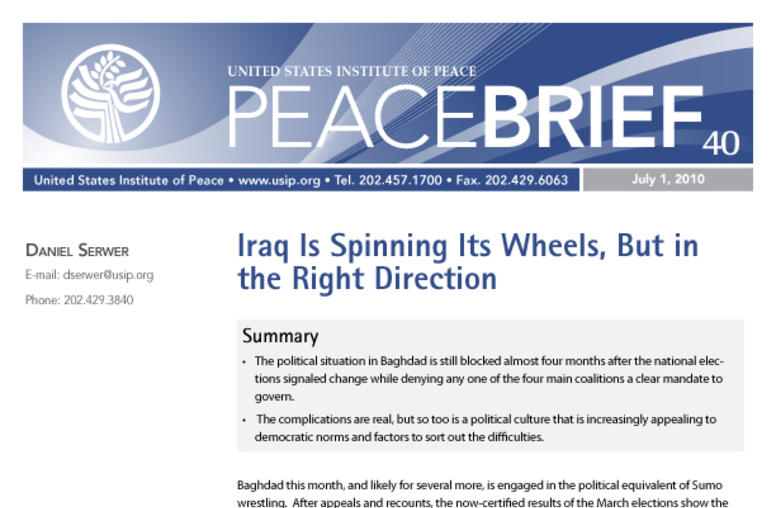
Iraq is Spinning Its Wheels, But in the Right Direction
The emerging Iraq is starting to look like other parliamentary democracies, measuring itself with democratic yardsticks, with internal sectarian and ethnic frictions still strong but being worked out through politics, and with neighbors who won’t leave it alone. This is far from the Bush administration’s beacon of democracy, but it may be something the Obama administration will be able to call a foreign policy success come November 2012.
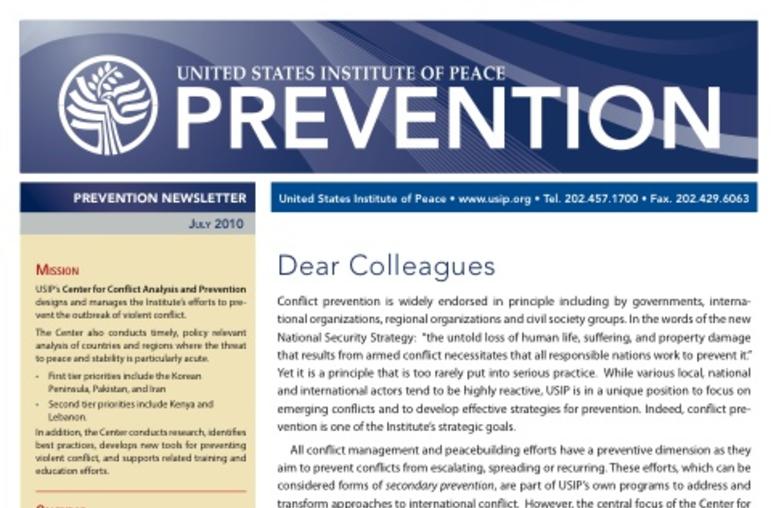
USIP Prevention Newsletter - July 2010
The bimonthly Prevention Newsletter provides highlights of CAP's conceptual work, its region specific work aimed at helping to prevent conflicts in Africa, the Middle East, South and Northeast Asia, and the special projects on genocide prevention and non-proliferation. It also provides Over the Horizon thinking on trends in different regions, as well as CAP events, working groups and publications.
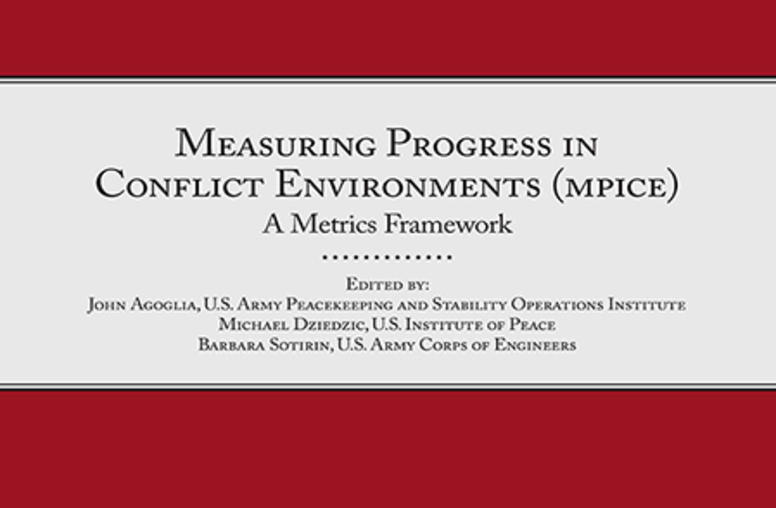
Measuring Progress in Conflict Environments (MPICE)
The primary objective of the Measuring Progress in Conflict Environments (MPICE, pronounced M-Peace) project is to provide a comprehensive capability for measuring progress during stabilization and reconstruction operations for subsequent integrated interagency and intergovernmental use. MPICE enables policymakers to establish a baseline before intervention and track progress toward stability and, ultimately, self-sustaining peace. The intention is to contribute to establishing realistic goal...
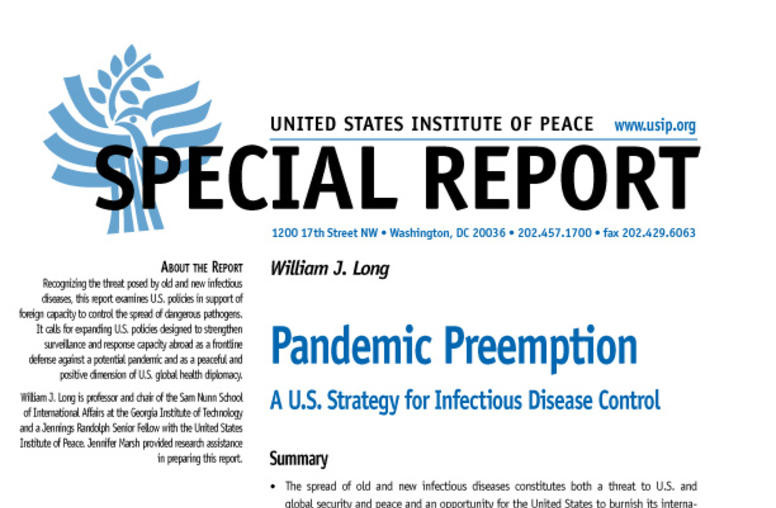
Pandemic Preemption
The spread of old and new infectious diseases constitutes both a threat to U.S. and global security and peace and an opportunity for the United States to burnish its international image through strengthening foreign capacity in infectious disease surveillance and response.
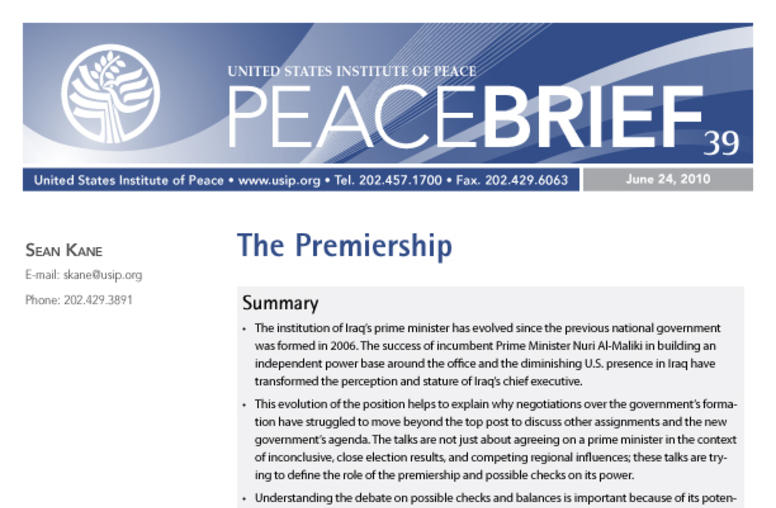
The Premiership
The institution of Iraq's prime minister has evolved since the previous national government was formed in 2006. The success of incumbent Prime Minister Nuri Al-Maliki in building an independent power base around the office and the diminishing U.S. presence in Iraq have transformed the perception and stature of Iraq's chief executive.
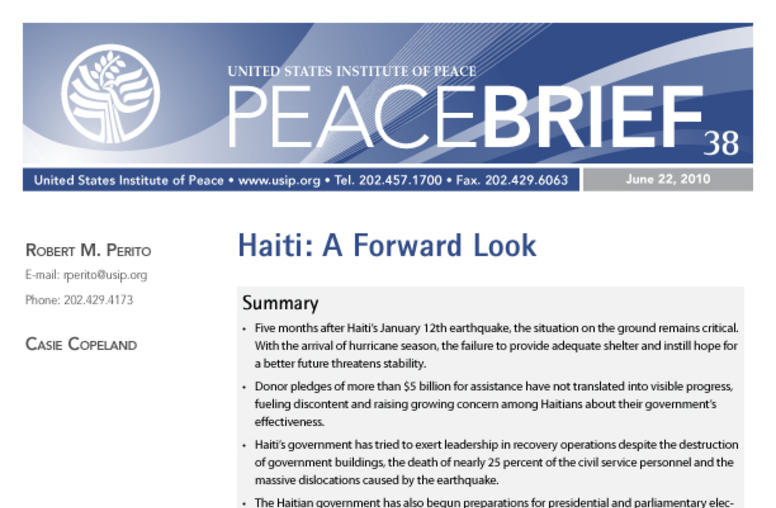
Haiti: A Forward Look
Five months after Haiti’s January 12th earthquake, the situation on the ground remains critical. With the arrival of hurricane season, the failure to provide adequate shelter and instill hope for a better future threatens stability.
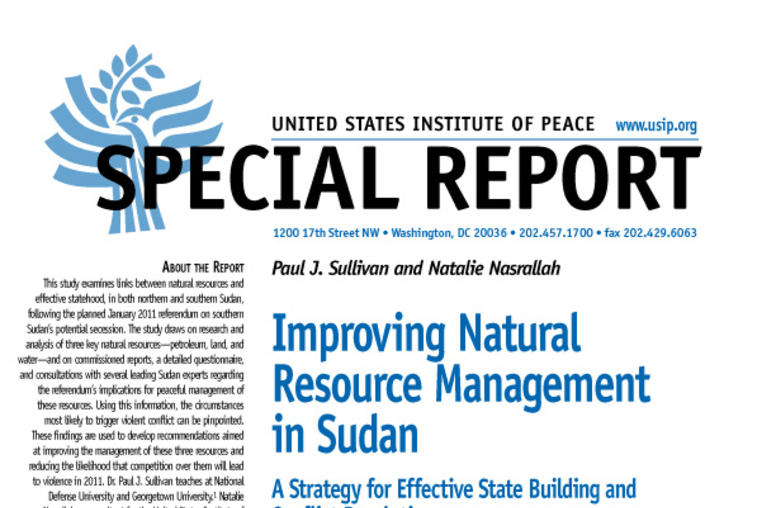
Improving Natural Resource Management in Sudan
Most experts view secession as the most likely outcome of the 2011 referendum on southern Sudan's potential secession. While this scenario may lead to some stability in the long run, effective secession immediately after the referendum may prove difficult.
Constitution Making, Peacebuilding, and National Reconciliation
USIP's advisory work on constitution making is focused on providing options to design and conduct participatory, inclusive, transparent, and nationally owned constitution making processes that enjoy legitimacy and promote national dialogue, reconciliation, and a consensual political community.